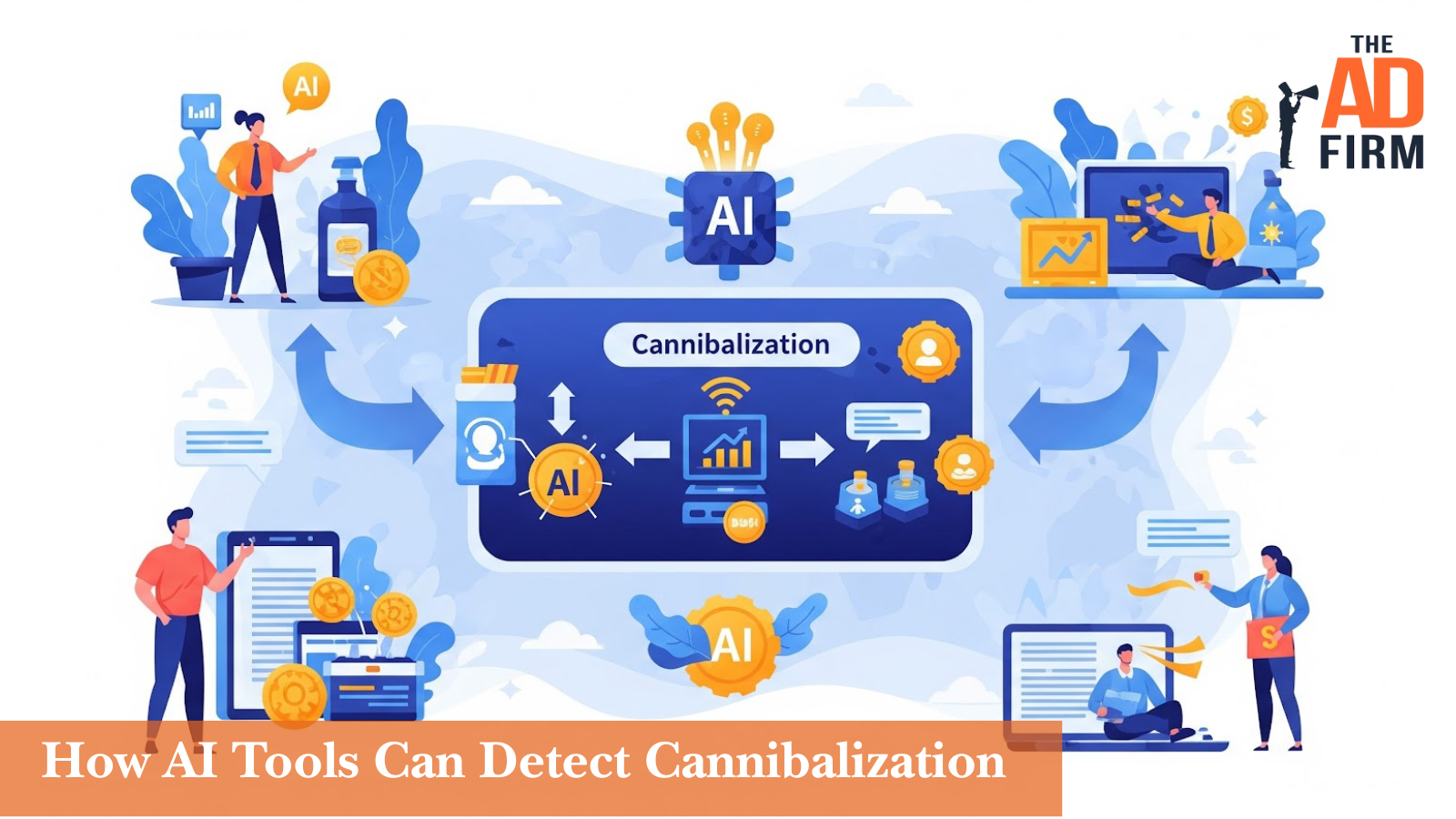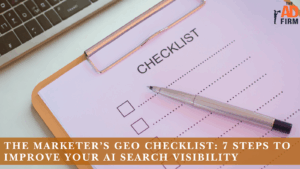If your SEO traffic is stalling despite publishing solid content, your content might be competing against itself, often without your knowledge. As Google SGE continues to favor pages that provide the most precise and relevant answers, websites with overlapping content are usually pushed down the results.
This blog breaks down what keyword cannibalization is, how it silently holds back your visibility, and how AI tools can help spot and fix it before it harms your rankings.
Why Keyword Cannibalization Hurts Your SEO
If your website has multiple pages targeting the same search topic, you might unknowingly be sabotaging your rankings. This issue is called keyword cannibalization, and it’s one of the most overlooked problems in SEO.
At its core, keyword cannibalization happens when two or more pages on your site compete for the same or closely related keywords. Instead of strengthening your visibility, this overlap forces Google to pick between them, which often leads to both pages underperforming.
This creates three significant issues:
- It splits your ranking potential: Instead of one strong page getting all the traffic, multiple weaker pages compete and dilute your visibility.
- It confuses search engines: Google may struggle to understand which page to rank, especially if both share similar headings, copy, or meta tags.
- It weakens both user and SEO performance: Visitors may land on the wrong page or a less helpful one, which hurts click-through rates (CTR), engagement, and conversions.
You’ll know something’s off when your rankings fluctuate without an apparent reason, your CTR drops even on well-optimized pages, or content that used to convert suddenly stops performing. These are common warning signs that your site might be cannibalizing itself.
How AI Tools Help Fix Cannibalization
Once you recognize that keyword cannibalization is affecting your site, the next step is identifying where it’s happening and how to fix it. This is where AI tools, often built into advanced local SEO services can help map out content overlaps and offer a clear path to resolution before your rankings take a hit.
Let’s walk through the key ways AI can help.
Detecting Similar Pages Competing for the Same Term
AI starts by scanning all your site’s pages to identify where keyword targeting overlaps. These overlaps are often subtle and complex to notice manually, especially on large websites.
Amplify Your Market Strategy with The Ad Firm
- PPC: Master the art of pay-per-click advertising to drive meaningful and measurable results.
- SEO: Elevate your visibility on search engines to attract more targeted traffic to your site.
- Content Marketing: Develop and implement a content marketing strategy that enhances brand recognition and customer engagement.
- Goes deeper than surface-level matches: It doesn’t just compare title tags, it also evaluates on-page copy, headings, image alt text, and even internal anchor links to catch duplication risks. This broader scan uncovers an overlap you’d likely miss on your own. Even slightly different pages can still target the same term without meaning to. AI catches those early, so they don’t confuse search engines later.
- Surfaces content conflicts between unrelated pages: You might have two different pieces with different goals, but nearly identical phrasing. This can happen when different writers or teams create content in silos without coordination. AI detects these unintended overlaps quickly. Once flagged, you can review and resolve them before they affect rankings.
- Identifies pages targeting overlapping keywords: AI tools can identify when multiple pages are optimized around the same core keyword. Without keyword differentiation, search engines may treat those pages as interchangeable or pick just one to rank. That weakens the visibility of all competing pages. AI allows you to allocate keywords more intentionally to give each page its own space.
- Provides an inventory of competing content: Rather than guessing which pages overlap, AI outputs a clear list of pages that compete for similar search terms. This gives your digital marketing agency or team a head start when planning updates. It also helps prioritize fixes by showing which pages are most at risk. Having that clarity speeds up the cleanup process and removes the guesswork.
Pinpointing Intent Conflicts Across Pages
Two pages might target the same keyword, but if their intent isn’t aligned, it sends mixed signals to search engines. A skilled SEO company can utilize AI to identify these intent mismatches and ensure each page serves a clear, distinct purpose, thereby enhancing clarity and rankings.
- Distinguishes between types of content: For example, one page may be a how-to guide, while another is a service pitch, both using the same target term. AI recognizes differences in structure and tone to determine the page’s intended purpose. This analysis helps prevent blending education with promotion in unhelpful ways. That way, each page serves its role clearly.
- Detects mismatched intent between pages: AI can tell when one page answers questions and another aims to convert, and neither is winning because they blur together. Search engines prefer content that matches a specific user intent. When messaging is unclear, Google may not show either page in the top results. AI highlights this so you can fine-tune each page’s purpose.
- Highlights unclear or blended messaging: Pages with mixed tones or overlapping goals often send the wrong signals to search engines. For instance, a blog post that sounds like a sales pitch may feel disjointed or confusing to users. AI identifies these gray areas that need more precise separation. Once fixed, your pages can target more specific search queries with better performance.
- Makes intent-based cleanup easier: With these flags, you can separate educational content from transactional pages, ensuring each targets its own goal. AI makes it easy to assign different keyword strategies based on each page’s purpose. That clarity improves both rankings and user experience. Ultimately, users land on the page that best fits what they’re looking for.
Recommending Specific Fixes Based on Data
After identifying problem areas, AI doesn’t just stop with a list; it offers direction. This turns a complex content audit into an actionable SEO plan.
Transform Your Online Strategy with The Ad Firm
- SEO: Achieve top search rankings and outpace your competitors with our expert SEO techniques.
- Paid Ads: Leverage cutting-edge ad strategies to maximize return on investment and increase conversions.
- Digital PR: Manage your brand’s reputation and enhance public perception with our tailored digital PR services.
- Recommends consolidating duplicate-topic content: If two pieces say nearly the same thing, AI may recommend combining them into one stronger page. This avoids internal competition and creates a more comprehensive resource. It also boosts authority by consolidating links and signals into a single destination. That merged page typically performs better in search.
- Reassigns keyword focus when overlaps hurt visibility: It may suggest shifting one page to a long-tail variation to avoid internal competition. For example, if two pages target “email automation,” one can be reoptimized for “email automation for ecommerce.” This preserves both pages while giving them distinct search targets. It also opens up more opportunities for ranking overall.
- Spot conflicting internal links that send mixed signals: AI tools often identify where your linking structure accidentally pits pages against each other. If multiple internal links point to different pages for the exact anchor text, it dilutes search signals. AI helps reroute those links to the right target page. That way, authority flows more strategically through your site.
- Ensures each page has a distinct SEO role: With clever AI prompts, your pages can be optimized to serve unique, non-competing functions. Whether it’s driving conversions, answering questions, or capturing local searches, every page gets a job. This keeps your site architecture clean and aligned. It also prevents future cannibalization as you continue to add content.
Read also: How to Use AI for SEO: Recommended Techniques & Tools
Why It’s Worth Cleaning Up Keyword Cannibalization Now
Overcoming keyword cannibalization is more than just tidying up; it’s a strategic move that strengthens your site’s overall performance. By resolving these issues, you set your website up for long-term SEO health, better engagement, and more scalable growth.
Here’s what you gain:
- Improved rankings through focused authority: When you consolidate competing content, Google no longer has to choose between similar pages. Instead, all your SEO signals, backlinks, engagement, and relevance point to one authoritative page. This concentrated effort gives you a stronger chance of climbing search results. It’s easier for search engines to trust and reward a clear content hierarchy.
- Higher conversions from a smoother user journey: Users convert better when they reach the right content without friction. Cannibalized content can send users in circles, leading to frustration or confusion. Cleaning it up helps people quickly find what they’re looking for and keeps them moving toward your goals. That means more leads, more sales, and lower bounce rates.
- A cleaner site structure that scales with ease: As your business grows, your website will too, and cluttered content makes future SEO harder. Fixing cannibalization now lays a clear foundation for expansion. With pages clearly mapped to unique keywords and purposes, you’ll avoid future overlap as your site grows. This structure also makes your site easier to audit, maintain, and optimize over time.
Let The Ad Firm Help You Untangle Keyword Conflicts
Keyword cannibalization quietly drains your SEO performance, and most businesses don’t realize it’s happening until rankings start to slip. At The Ad Firm, we combine advanced AI audits with human-led strategy to find, fix, and future-proof your content structure.
Streamline Your Digital Assets with The Ad Firm
- Web Development: Build and manage high-performing digital platforms that enhance your business operations.
- SEO: Leverage advanced SEO strategies to significantly improve your search engine rankings.
- PPC: Craft and execute PPC campaigns that ensure high engagement and superior ROI.
From full-scale SEO audits to on-page optimization, internal linking strategies, and AI-powered keyword mapping, we tailor each fix to your brand and business goals, not just what the tools spit out.
Let us help you stop competing with yourself and start climbing search results with clarity. Contact our SEO experts to get started.





